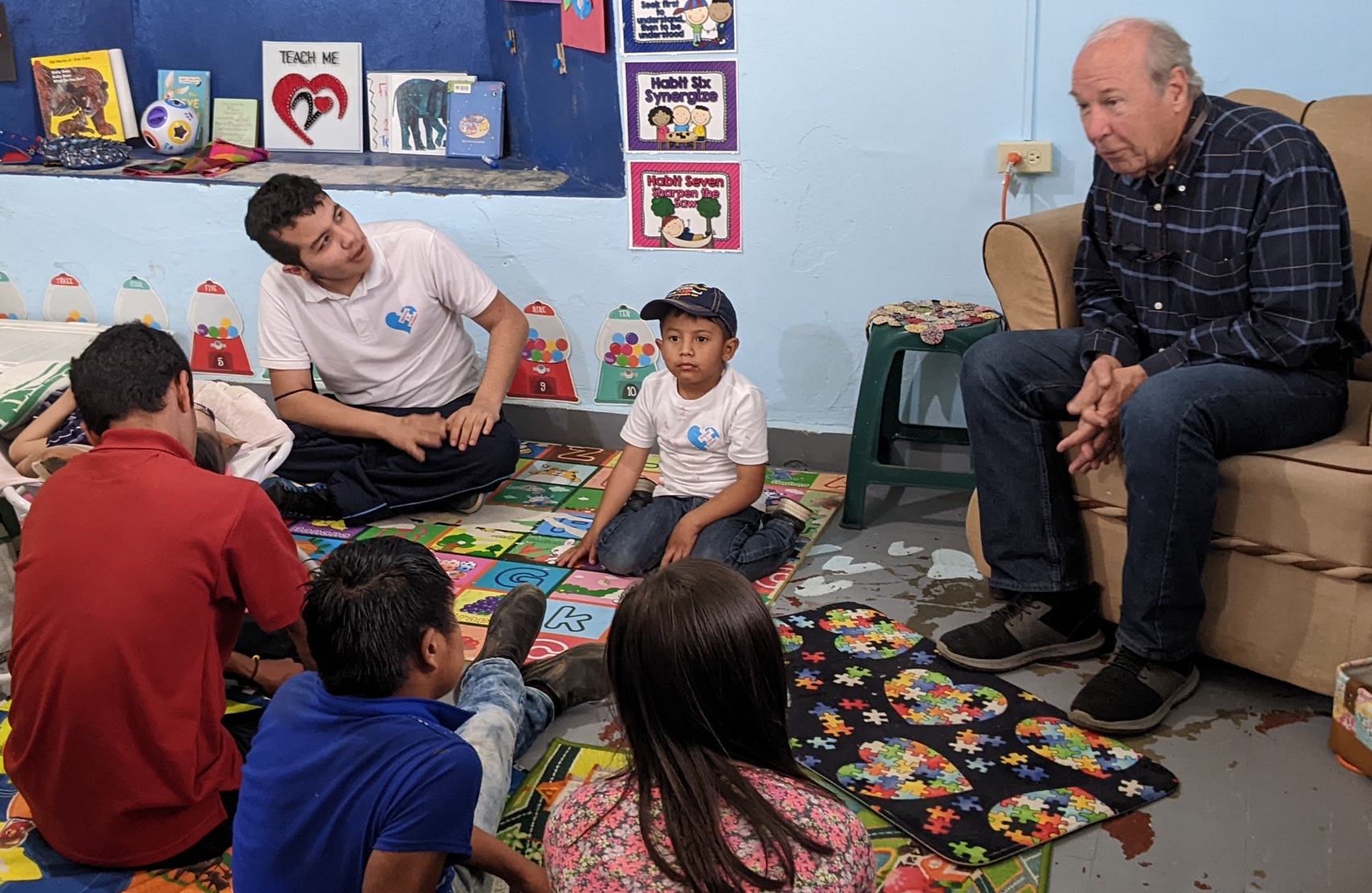Our mission to Honduras, our first visit to the country, took us to the picturesque mountain town of Las Esperanza, a quaint setting inhabited mostly by the gentle and friendly decedents of the indigenous Lenca Indian tribe. This visit was essentially an introductory trip to get to know some of the local pastors and missionaries in order to lay some foundations for future ministry there. Our hosts were Gene and Robin Willis, who graduated from the Charis Bible College Mission School while it was under Delron’s direction. They did an excellent job of opening doors of ministry for us with a variety of different ministries under the direction of several different missionaries and local pastors. All of the missionaries and pastors we met enthusiastically received us and asked us to come back for future ministry on a larger scale.
Each day, regardless of what our schedule held, started at 5 AM since our hotel was located next door to the Catholic church whose bell – from five o’clock in the morning until eight o’clock each evening – rang out the time each hour, gave a single clap each half hour, and presented a full serenade when it was time for the faithful to gather for mass.
Our first service in Honduras was at a small church which is just beginning. The services are held in a restaurant that belongs to one of the ladies in the fledgling congregation which began after some doctrinal issues arose in the church they had formerly attended. Hungry to get sound teaching, they asked a missionary whose ministry is running a school if he would be willing to take on the added responsibility of pastoring the flock. Although his “plate was already full,” he accepted the challenge and has begun to nurture the congregation. He welcomed our visit on that particular Sunday morning because he had just finished a teaching series the previous week and hadn’t planned to start his new sequence until the following week since he wanted to begin at the first of a new month. When our friend approached him about having us in the church, he readily agreed, saying that it seemed to be the perfect answer to his prayer about what to do on this “off” Sunday. Everyone in the little congregation enthusiastically received Peggy’s teaching and were thrilled as she shared her testimony which was intertwined with the message.
Our second day in La Esperanza was divided between making preparations for the upcoming pastors’ conference and hosting a fellowship time with all the local missionaries. Many of the pastors from the small mountain villages receive little or no salary from their churches because the members are basically subsistence farmers. In addition, these self-sacrificing ministers had to lose a day’s pay from their outside work and travel some considerable distance to attend the training. Therefore, we decided to bless them with food packages to take home in addition to the meal that they would be receive at the meeting. After doing the shopping, we portioned the supplies we had purchased and made individual packages for each of these dedicated servants of the Lord. After finishing the task of making the food packets, we welcomed the local missionaries for a time of fellowship and encouragement. After getting acquainted with them and learning about the wide variety of ministries they are doing in the community, we shared copies of Delron’s book Passion for the Harvest with them and encouraged them from the Word of God.
The following day, Delron took the morning off to do some writing on his next volume of Daily Ditties from Delron’s Desk while Peggy ministered at a women’s gathering which was hosted by a local resident who turned out to have some connection with Delron which dated back some fifty years. When he was a student at North Carolina State University, Delron was friends with the gang leader-turned-evangelist Nicky Cruz whose office was in the same town and who ran a rehabilitation home for girls just a few blocks from the campus. Since our host had mentioned that Ruth had had some association with Nicky, Delron asked her to share how she knew the Puerto Rican evangelist. As she told her story, it turned out that she had been a resident at the home during the exact timeframe that Delron had was volunteering in the ministry. Now that she is living in La Esperanza, one of the things that the Lord had placed on her heart was to establish an outreach to the local women by inviting them for fellowship and refreshments at a local coffee shop and incorporating a time of Bible study and sharing the gospel. She felt that Peggy’s visit was an excellent opportunity to kick off this new ministry; so, Peggy had the privilege of speaking at the inaugural meeting of this new outreach where she shared her testimony, encouraged the women to find their places in the work of the Lord in their community, and gave each attendee a copy of her Women for the Harvest book in Spanish.
However, Delron didn’t get the full day off because he was scheduled to preach that evening at the church of the pastor who heads up the ministerial fellowship of the pastors who had been invited to the pastors’ conference. Since the pastor had never heard Delron minster before, he was thankful to get acquainted with him before the conference and told him that his message was exactly what the pastors in his fellowship needed to hear.
The next day took us past the Catholic church with its bells and just across the plaza from our hotel to the local prison – a facility that houses around three hundred men and four women. When we entered the prison, we were ushered into a courtyard in the center of the facility where we found ourselves in what seemed like a village square with everyone busily engaging in his own activity. Some were washing their clothes which, using long poles, they hung up to dry on clothes lines that were strung about fifteen feet above the plaza. Others were gathered in small conversation groups, but most were busy doing weaving with nylon cord – making hammocks, fishing nets, and handbags that would be sold outside the prison to provide some pocket money for the inmates to buy personal essentials such as toothpaste. After a few minutes of getting to know the pastor, who was actually one of the inmates himself, we were ready to begin the service. A couple of the inmates brought out a stack of stools, a pulpit, and a speaker system. About forty of the men found their places on the seats while many others stood behind them. The weavers continued their work but attentively listened to everything that came out of the loudspeaker. Others who seemed uninterested had no choice but to hear the message – even if they didn’t listen. Noticing that only a handful of the inmates had Bibles with then in the service, Delron used the story of a distant relative who had been imprisoned in North Korea and testified that the only way he could maintain his sanity while in confinement was to meditate on the Word of God as the basis for a very short message encouraging them to share with the rest of the men what they were learning from reading the Word of God. Peggy followed up with a full message on knowing the Lord and concluded with the sinner’s prayer. On your way out of the prison, we had the opportunity to meet one of the officials who offered our host missionary and one of the other local gospel workers the opportunity to minister in the facility on a regular basis.
We spent the following morning at a school for children with special needs – mostly autism and Down’s Syndrome – the only such school in the country. The normal approach to dealing with children with such disabilities is to simply ignore them, allowing them to spend their whole lives without any sort of encouragement, education, or possibility of integration into society. It was amazing to see what the missionaries had been able to accomplish with these children by simply showing them the love of Jesus through their own loving interaction and giving them structure and routine in their lives so that they could begin to develop the necessary social skills to adapt to the outside world. Delron shared a short Bible story about some children in the Bible who were also disabled but were touched and healed by Jesus’ love.
The high point of trip was the pastors’ conference which drew pastors and church leaders such as youth directors and worship leaders as well as their wives from the general vicinity. The event was held at a novel venue – a large auditorium that had been chiseled out of the bedrock of a mountainside. Although it is known as a cave, it was actually a manmade chamber that had been dug out by a pastor who wanted to create a location for Christians to gather for edification and instruction. Although we only had one day with these church leaders, we crammed in an incredible variety of topics including biblical counseling, how to see more impact from your ministry, the pastor’s relationship with his family and the congregation, the role of women in the church, the difference between new and old covenants, pastoral burnout, and the role of the five-fold ministry – plus a full smorgasbord of ideas which were brought up in the question-and-answer period.
The following day, Peggy returned to the special needs school to minister to the mothers of children in the school. Since the prevalent mentality in the local culture is that disabled children are a punishment upon women who have sinned or failed God in some way, these women often spend their entire lives in guilt, shame, and embarrassment. In addition to sharing scriptures, giving personal encouragement, and praying for the women, she gave out Spanish copies of her Women for the Harvest book. Later that day, Delron joined Peggy for lunch with one of our interpreters and her business partner who had not been able to attend any of our meetings due to her responsibilities at a shop she owns. However, she had been “devouring” Peggy’s book. In fact, she said that she got irritated every time a customer came in and interrupted her reading. She also shared that she had posted a picture of the book and made comments about it on social media and had received multiple responses from other women who wanted to read it. Since we had depleted our supply by that point in the trip, we promised to send her additional copies when our missionary friends came the States for Christmas. The conversation soon turned to some misunderstandings concerning the baptism in the Holy Spirit and misuses of the gifts. We carefully went through the scriptural principles and discussed personal experiences – leading us to the conclusion that we should have Delron’s book on the Holy Spirit (Don’t Leave Home Without It) translated into Spanish and use it as the textbook for the conference on our next visit to the country.
Sunday was our final day in Honduras, and we had just one church service on our schedule; however, the pastor of the church had slipped into Peggy’s women’s meeting earlier in the week and heard her minister with the result that he felt his congregation would benefit from having her minister to them; so, he invited her to preach in the afternoon service. He then mentioned that he had been focusing his ministry for the whole month on miracles – a powerful confirmation for Delron since he had already felt directed to speak on “Doing the Impossible,” a perfect conclusion to the church’s “Month of Miracles” since the message gives six scriptural principles confirmed through biblical stories and his personal testimony on how to see impossible situations in our lives become possible! Peggy followed up in the afternoon service with a message on “How to be Someone Else’s Miracle,” sharing both scriptural truths and personal experiences.
The ten days we spent in Honduras brought life-changing impact in many lives, encouragement to many ministers and missionaries, and liberation to many women; they also forged permanent bonds with the local believers – opening doors for a continuing ministry in the country.
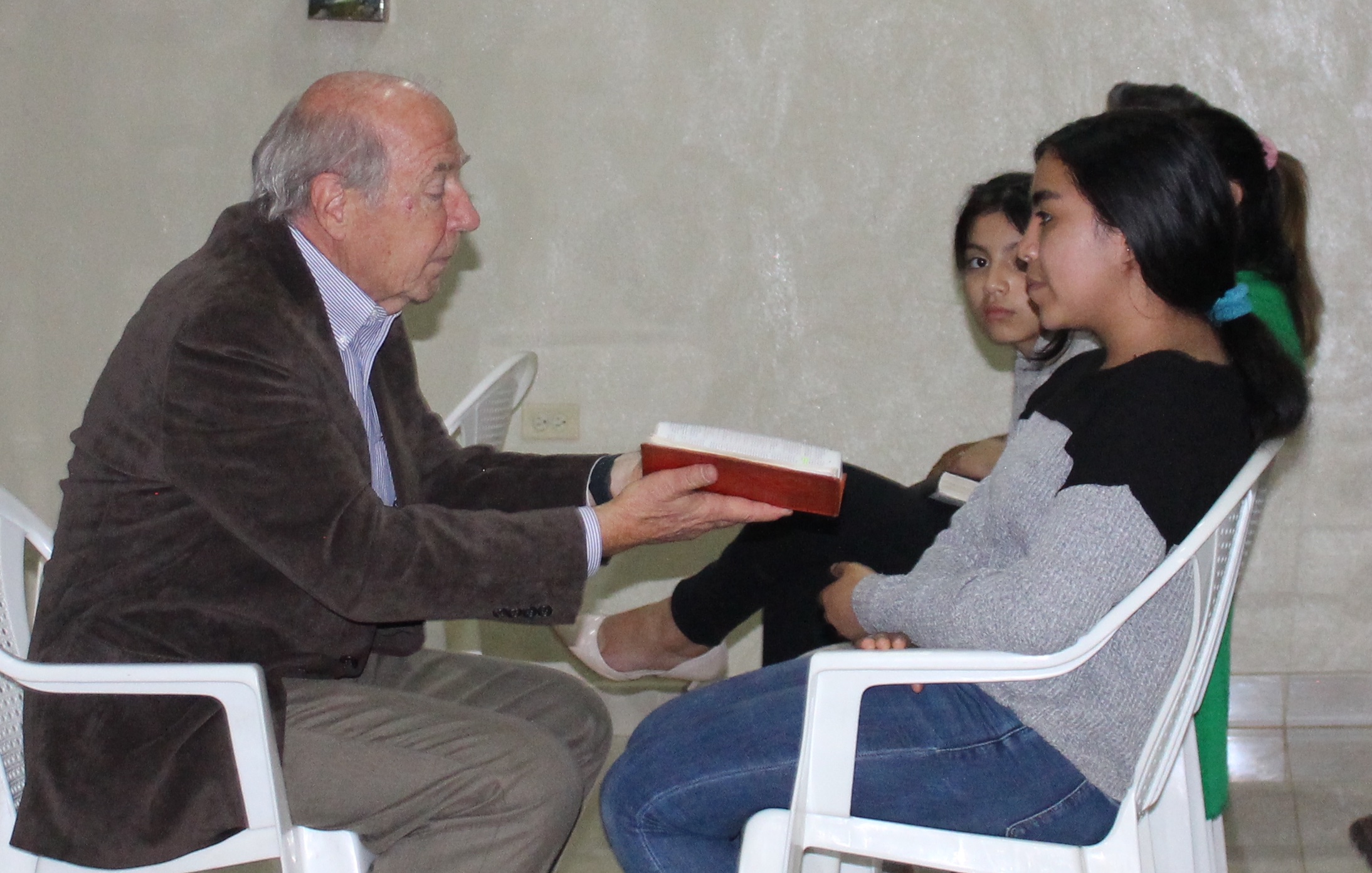
An Object Lesson
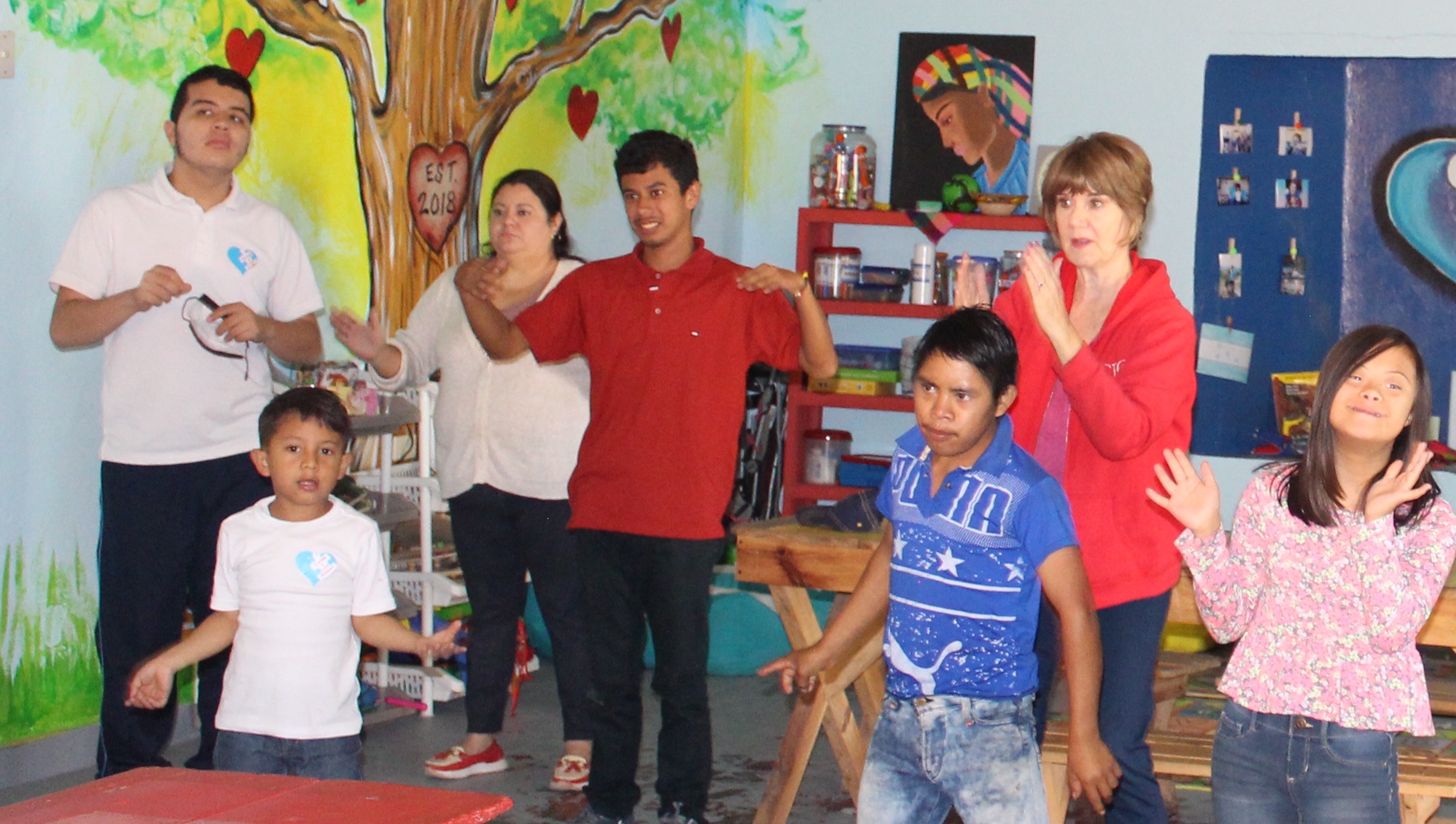
Peggy with Special Needs Kids

Anointing
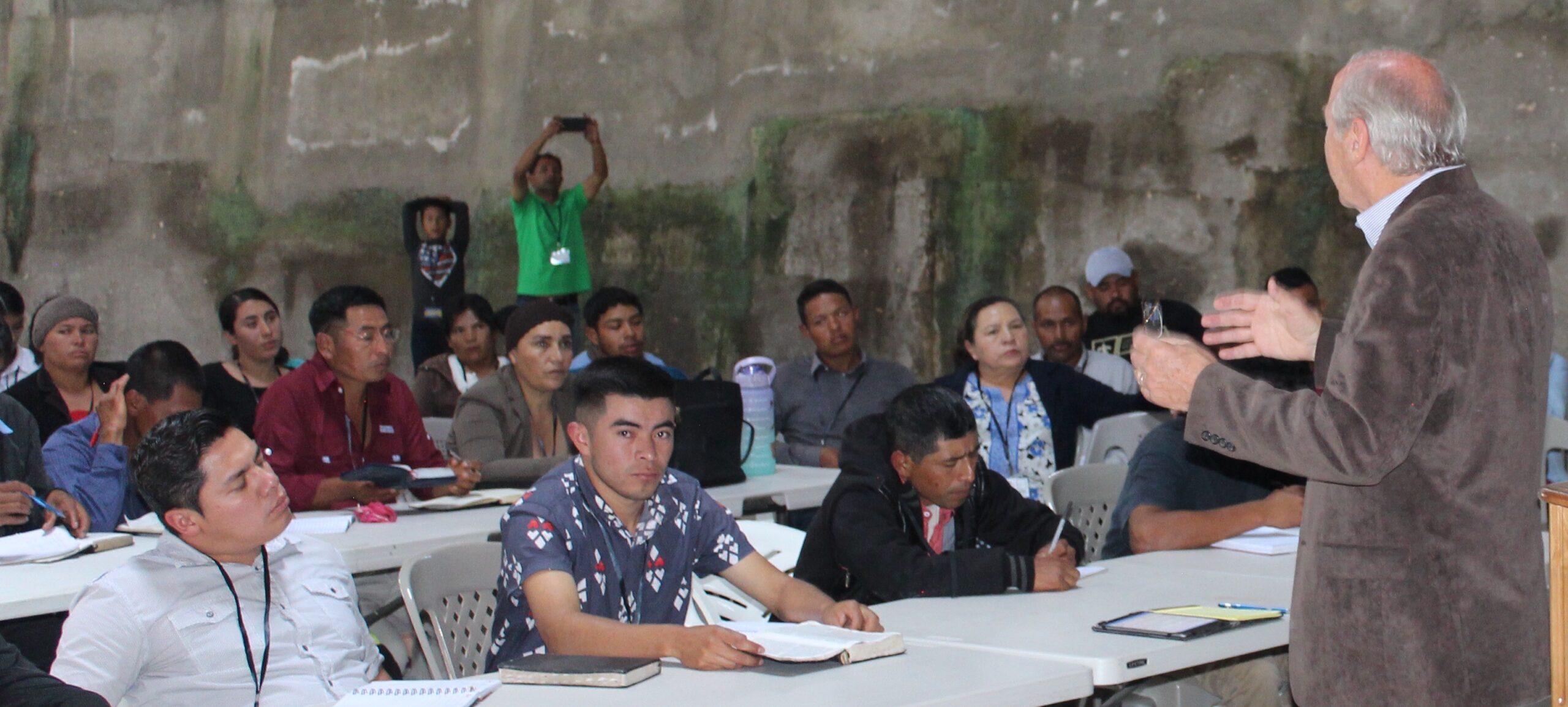
Delron Teaching in Cave
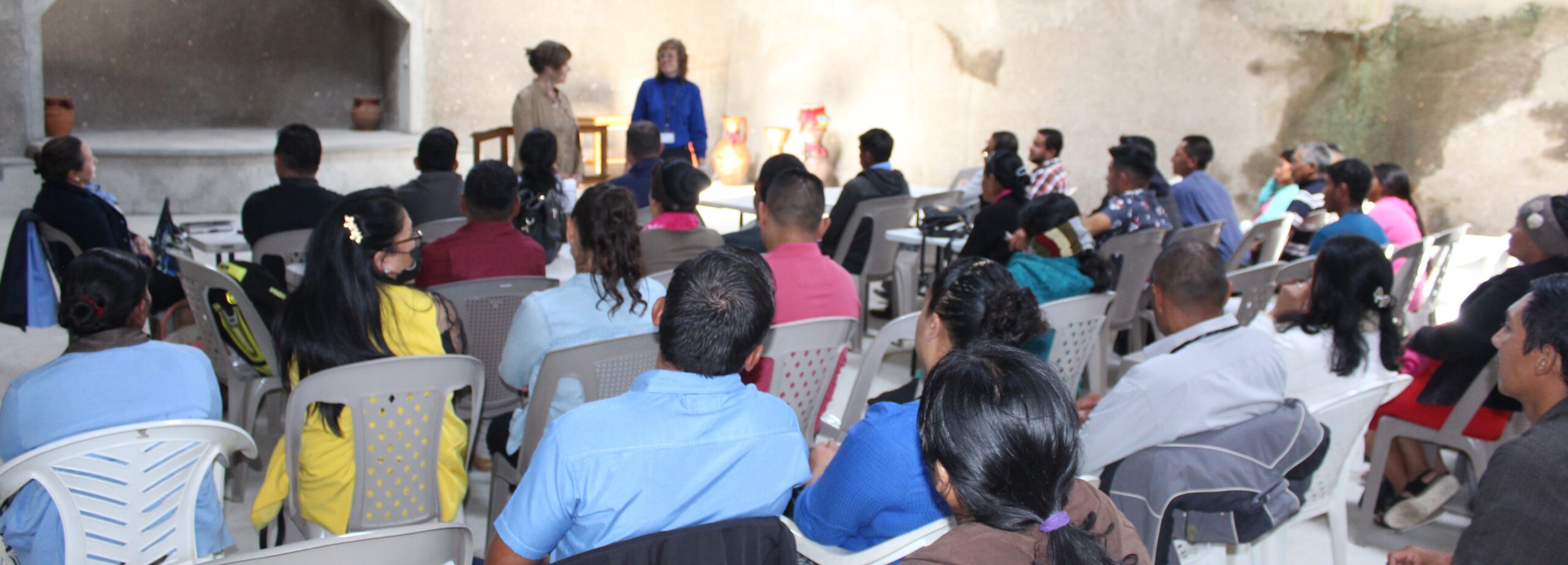
Peggy at Pastor’s Conference
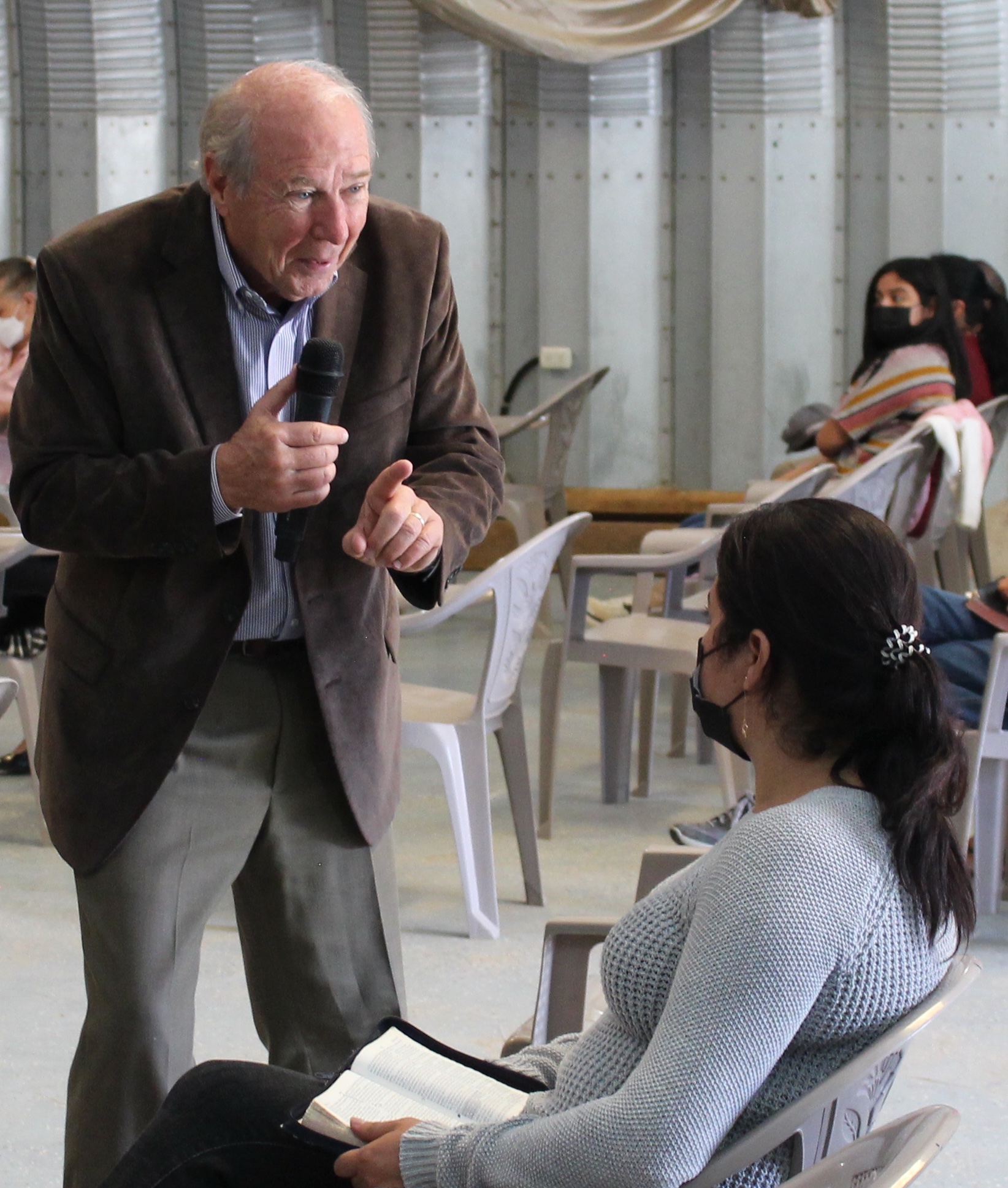
Making a Point

Prayer
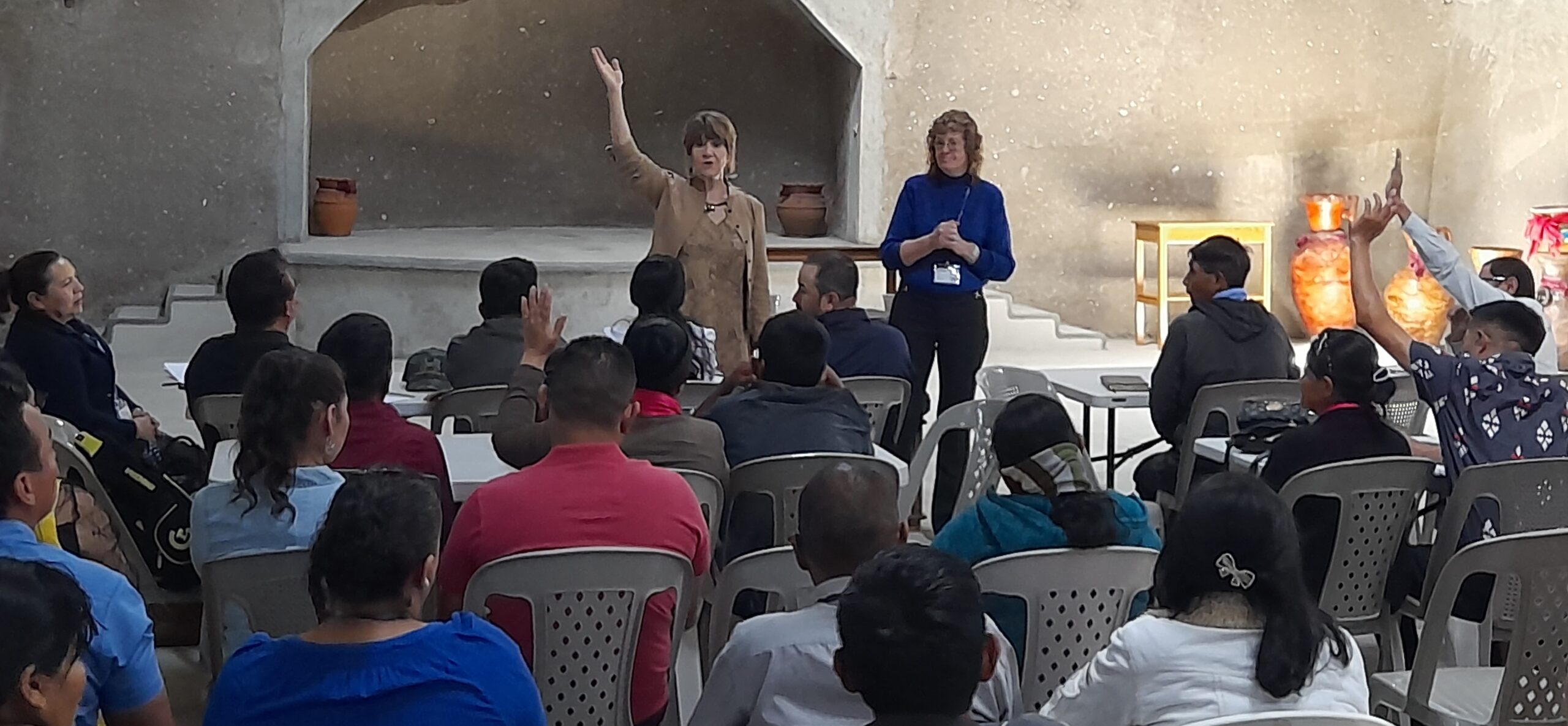
Peggy Preaching in a Cave

Praying
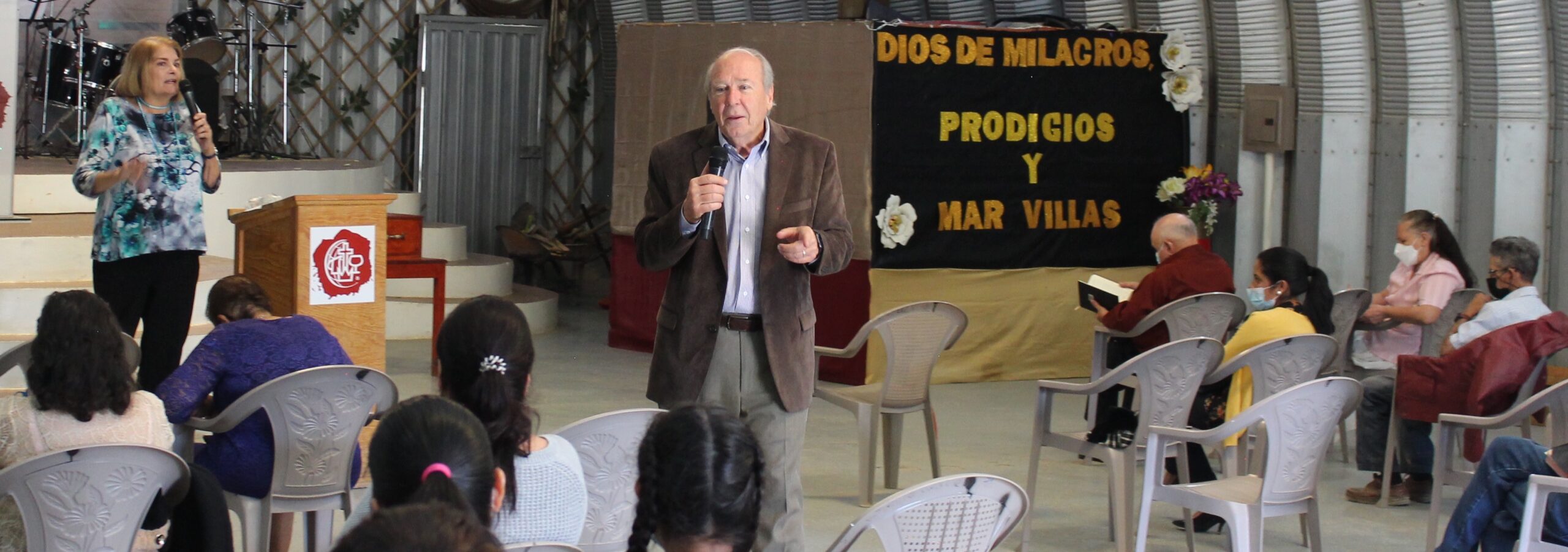
Preaching in a Church
